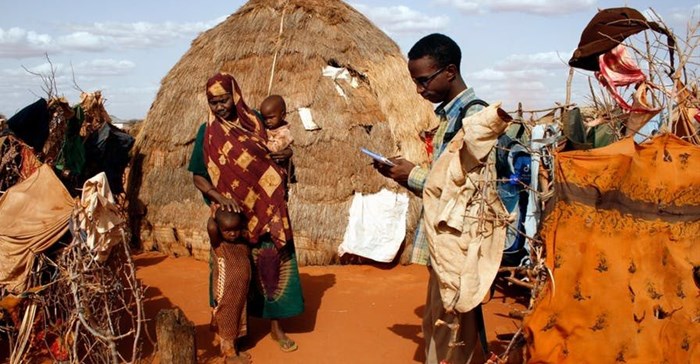Why fixing Africa's data gaps will lead to better health policies

African countries are also experiencing the revolution when it comes to volume, types, sources, frequency and speed of data production. This is particularly true in the population and health sector. There’s more population and health information available in the public domain than ever.
Ministries of health in most African countries conduct periodic health programme reviews to establish whether policies are producing the desired results. Countries also undertake assessments on the incidence, distribution, and control of diseases. This is done through frequent analysis of routinely collected data with the aim of improving programmes.
These periodic reviews usually serve as important input for national strategic plans. But there are still challenges with the collection of accurate and timely data, their utility, use and analytical capacity. This means that it remains difficult for many countries to develop evidence-based policies.
Mapping the issues
A number of challenges face countries trying to improve the collation and use of reliable data. Here are some of them.
Coordination: There are multiple sources of health data. These include household surveys, census, health facilities, disease surveillance, policy data and research studies. Datasets are increasingly spatially referenced and would be valuable in informing health programmes and monitoring performance. But they remain relatively under-used. It’s important to find a way to bridge this gap and increase discovery and use of data.
A platform for analytic support and triangulation of available data is needed. This would reduce fragmentation and duplication while improving efficiency.
Frequency of analysis: The premise of evidence-based decision making is that health data lack value unless they are analysed and actually used to inform decisions.
This is why coordinated and systematic analysis and review of all available data is essential. The analysis and reviews must be done at regular intervals. Regular programme assessments are critical, but are often lacking or insufficient.
Data structures: Periodical population and health surveys often consist of quantitative, qualitative and geospatial data that is voluminous and/or comprehensive. This requires well trained staffs with appropriate analytical skills to make meaning of these data.
Routinely collected health service or register-based data is common in the health sector and is traditionally used for reporting purposes. This data are longitudinal and provide wider coverage – geographically and in terms of the items recorded. This allows for trends in the use of services to be estimated. But the use of routinely collected data in most African countries has been far from optimal. This is mainly due to a lack of analytical capacity and low government demand for the data.
Data quality: Health data, especially routinely collected service data, often have quality issues. These include missing values and errors in data entry and computation.
These errors can lead to wrong results, wrong conclusions and wrong recommendations. They can also mean that new priorities, policies and programmes based on the data will be wrong.
In addition, data analysis, dissemination and use in the sector are held back. This is a problem because the use of information sources beyond routine health management information is already weak.
Good quality data are essential for proper planning, budgeting and implementation of development activities, particularly those in essential services sectors such as public health. In the absence of quality data public resources investments are often based on guessed estimates, this leads to wastage.
Data cost: Data collection, handling, archival and analysis is still expensive in terms of capacity, logistics and financial implications for most countries in sub-Saharan Africa. National statistical offices don’t have the necessary technological, financial and human resource capacities to collect, process and disseminate the required data.
Making data work
African countries continue to work towards achieving national and regional commitments to improving data collection and use. But it’s critical that governments invest in relevant, timely and accurate data production for decision-making.
Data actors including data managers, statisticians and data analysts need to be involved at every stage. They need to be part of mapping out the problems as well as designing research methodologies and figuring out how to collect, analyse and disseminate data.
A wide range of data, including earth observation and geospatial data, needs to be leveraged to review progress in meeting health and wellbeing targets. This is critical to improving the effectiveness and sustainability of health systems.
And there’s an urgent need to shift the focus from data to information and knowledge. This includes working with end users, like health departments, to create tools to access information.
Finally, governments need to make resources available to meet commitments to providing quality and affordable health care for all. This could be done by mobilising domestic resource, setting standard data indicators (for collection, analysis and reporting) and strengthening national statistics bodies.
Commitment may be the first step towards affordable health care. But more needs to be done to harness the power of data for public health.
Michelle Mbuthia, a communications officer at APHRC and Caroline Kabaria, a postdoctoral Researcher at APHRC contributed to this article.
This article is republished from The Conversation under a Creative Commons license. Read the original article.![]()
Source: The Conversation Africa

The Conversation Africa is an independent source of news and views from the academic and research community. Its aim is to promote better understanding of current affairs and complex issues, and allow for a better quality of public discourse and conversation.
Go to: https://theconversation.com/africa






















